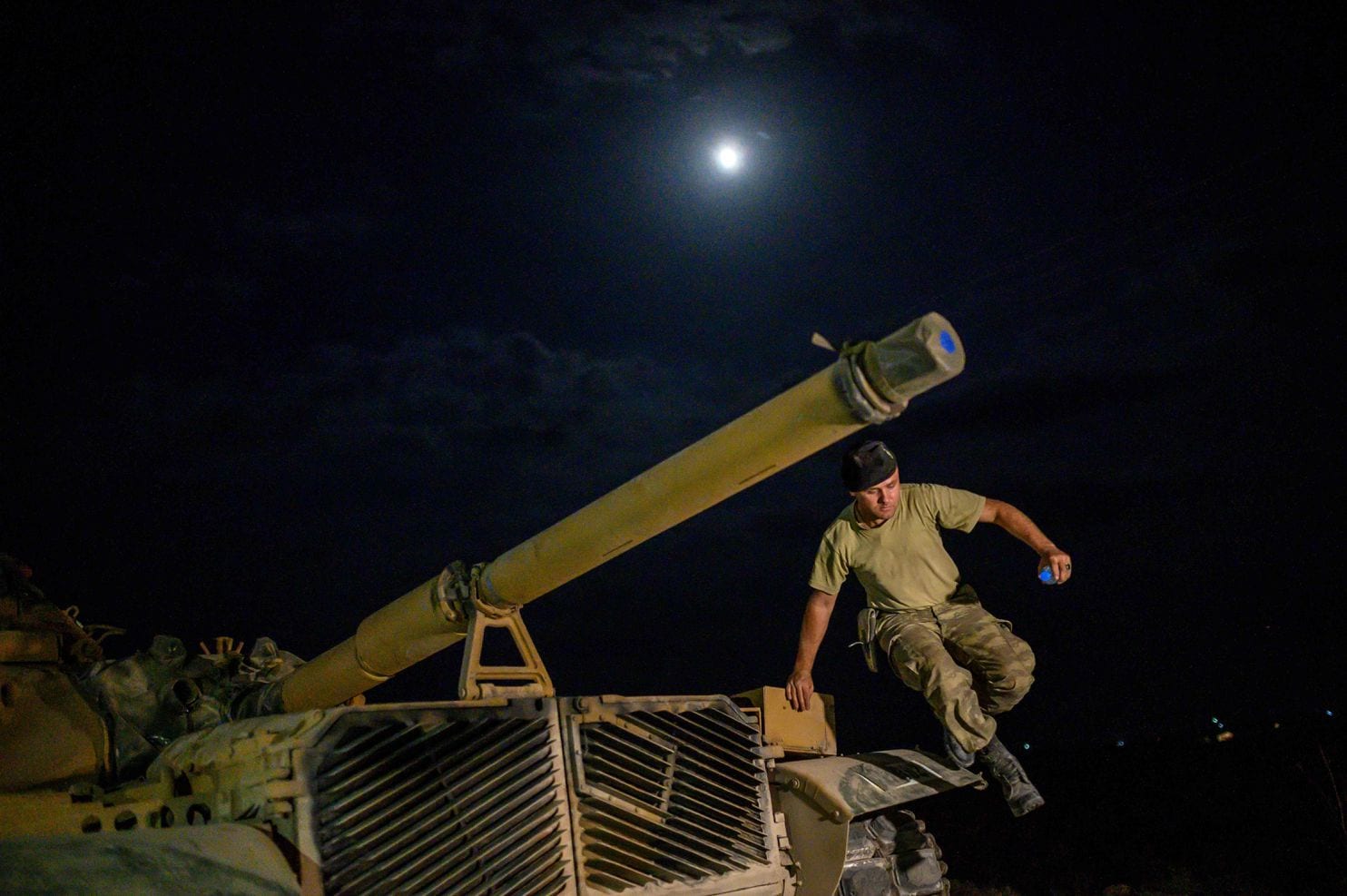The world must support Turkey’s plan for northeastern Syria

During a phone call with President Recep Tayyip Erdogan on Sunday, President Trump agreed to transfer the leadership of the counter-Islamic State campaign to Turkey. The Turkish military, together with the Free Syrian Army, will cross the Turkish-Syrian border shortly.
George Washington famously said that America must “steer clear of permanent alliances.” American officials have been saying for years that their partnership with the terrorist organization Kurdistan Workers’ Party’s Syrian affiliate, People’s Protection Units (or YPG), in the fight against the Islamic State was “tactical.” Trump’s latest decision reflects that view.
Like the United States, Turkey does not go abroad in search of monsters to destroy. But when monsters attempt to knock down our doors and harm our citizens, we have to respond. Sending young men and women into battle is never an easy decision. As Turkey’s founder, Mustafa Kemal Ataturk, once said: “Unless a nation’s life faces peril, war is murder.” Unfortunately, we find ourselves precisely in that situation today.
Turkey has no ambition in northeastern Syria except to neutralize a long-standing threat against Turkish citizens and to liberate the local population from the yoke of armed thugs.
Having suffered dozens of casualties in Islamic State attacks, Turkey was the first country to deploy combat forces to fight the terrorists in Syria. Our country also helped the Free Syrian Army keep thousands of Islamic State militants behind bars for years. It is in our interest to preserve what the United States has accomplished and to ensure that history does not repeat itself.
It remains to be seen whether YPG militants will agree to the change in the campaign’s leadership. Indeed, they have two options: If they are genuinely interested in fighting Islamic State, they can defect without delay. Or they can listen to their commanders, who say that they will fight the Turkish forces — in which case we will have no choice but to stop them from disrupting our counter-Islamic State efforts.
The world has a vested interest in the success of the fight against Islamic State under Turkey’s leadership. American military advisers, who have been on the ground for years, deserve to return home. The locals, many of whom were forced into exile when the YPG took charge, get to return to their ancestors’ lands. The proposed safe zone is good for Europe because it will address the problem of violence and instability in Syria — the root causes of illegal immigration and radicalization. Finally, the plan helps Turkey shelter innocent people from a known terrorist organization.
Erdogan unveiled the details of Turkey’s “safe zone” plan at the United Nations General Assembly last month. Turkey estimates that up to 2 million Syrian refugees will volunteer to live in a 20-mile secure area spanning from the Euphrates River to the Syria-Iraq border. If the safe zone’s southern border reaches the Deir ez Zor-Raqqa line, that number could reach 3 million, including refugees currently in Europe.
Turkey will build on its past experiences in northern Syria to keep the safe zone secure and stable. We believe that the Syrian people are best equipped to govern themselves through elected local councils. It is crucial to support and foster local political representation in order to prevent the resurgence of the Islamic State in northeastern Syria. In predominantly Kurdish areas, such as Afrin, Turkey oversaw the creation of local governing bodies with a Kurdish majority. The same will go for predominantly Kurdish parts of northeastern Syria. Our goal is to supplement those steps with international infrastructure investment for schools, hospitals and housing.
America has borne the brunt of the counter-Islamic State campaign for too long. Turkey, which has NATO’s second-largest army, is willing and able to take the lead now and drive it home, bringing millions of refugees back to Syria in the process. At this critical juncture, the international community must rally behind Turkey’s rebuilding and stabilization efforts.
Goobjoog News